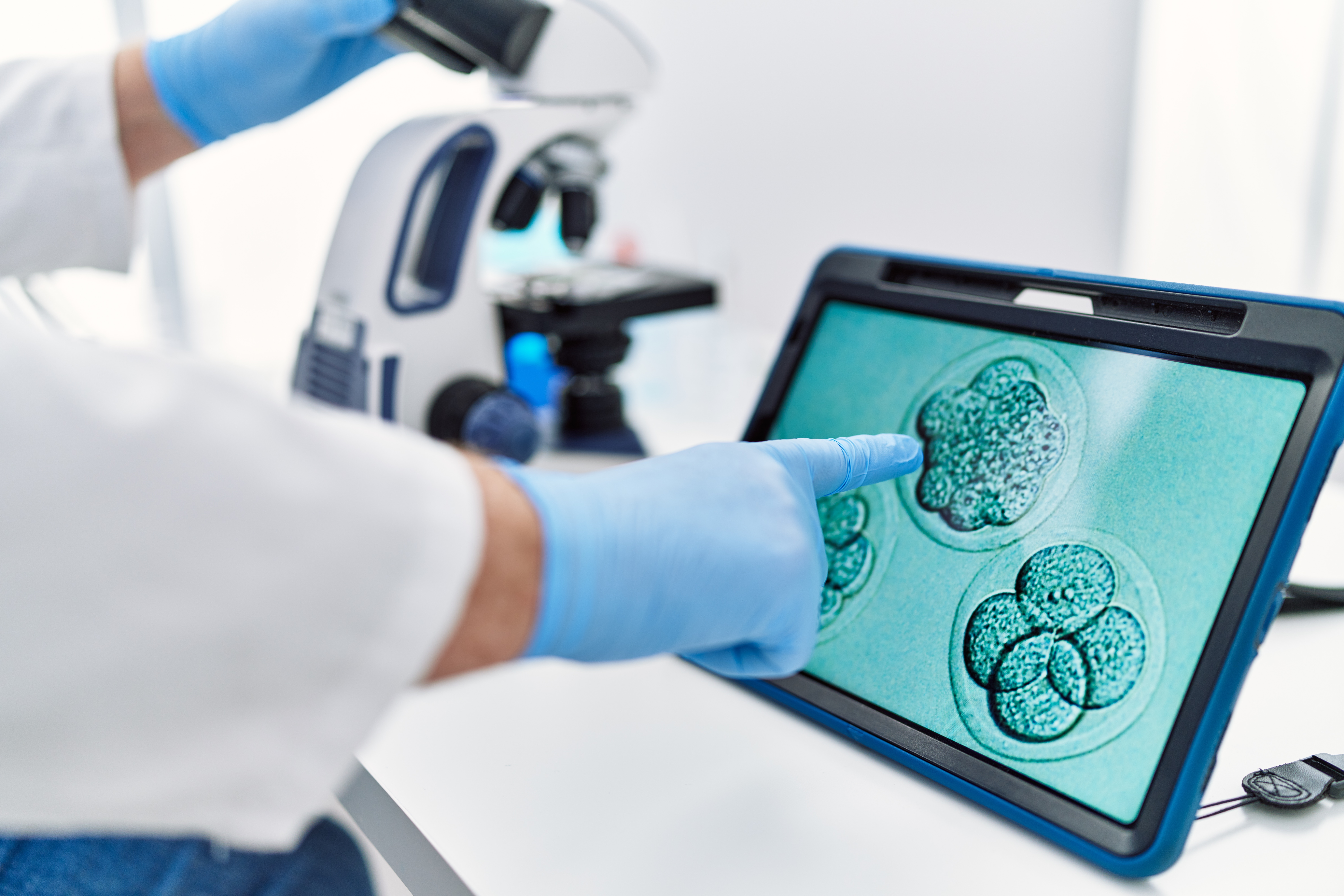Conception is not possible without a fertilized egg. This is referred to as an embryo. However, not all embryos are the same. A “normal” embryo is called euploid. It is made up of cells which consist of a specific number of chromosomes—46 to be exact. However, some people’s embryos contain cells with an uneven chromosome count—they are referred to as aneuploid embryos. Others have embryos with both types of cells. These are called mosaic embryos.
The details of embryonic makeup can have a big effect on conception and pregnancy. Euploid embryos typically beget an easier and healthier pregnancy than those with aneuploid or mosaic cells. However, there are plenty of success stories for pregnancies with aneuploid or mosaic embryos as well.
In this article, we will discuss some basic details about each embryo type. If you come away with more questions, or need information on alternative fertility treatments (like egg donation) please contact our team. We would be happy to speak with you about building a family, whatever your circumstances may be.
What is an Euploid Embryo?
Conception begins when an egg is fertilized by sperm, creating an embryo. Embryos typically contain cells with 46 chromosomes, and they come in 26 pairs. One of each of these chromosomes comes from the embryo’s biological parents. Biologically female parents can only pass an X chromosome on to their embryo, while biologically male parents can pass either X or Y. The combination of X and Y chromosomes in an embryo will determine biological sex.
Euploid Embryo Success Rate: What to Expect
When an embryo contains cells that have all 23 pairs of chromosomes, it is considered euploid. A euploid embryo tends to be the most straightforward for pregnancy without complications, and generally results in a straightforward live birth.
Aneuploid vs Euploid Embryo: What are the Differences?
The key difference between an aneuploid vs euploid embryo is that the former consists of “abnormal” cells while the latter is made from “normal” ones. The term “aneuploid embryo” refers to a fertilized egg that has cells with an uneven number of chromosomes. While these circumstances can still lead to a successful live birth, that is unfortunately not always the case, even with IVF.
Many families embarking on an IVF or surrogacy journey first undergo a process called PGS, or Pre-Implantation Genetic Screening. This will help determine embryo type before undergoing an IVF procedure. There are also many alternative conception options if your PGS shows that you are producing euploid embryos, like egg and/or sperm donation.
What is a Mosaic Embryo?
Embryo makeup isn’t entirely binary. While plenty of embryos are solidly aneuploid or euploid, some have a more complex composition. This is where the “mosaic” embryo comes in. With a mosaic embryo, some cells have the “typical” amount of 46 chromosomes, while others have an “abnormal” chromosome count.
The term and concept of a mosaic embryo is fairly new; the term was only coined in 2015. However, they are not a rarity. Mosaic embryos account for 20% of PGS testing results.
Are There Any Mosaic Embryo Success Stories?
Yes, there are lots! The concept of mosaic embryos is not black and white, and some people who produce mosaic embryos have larger counts of “abnormal” cells than others. Many families with mosaic embryos choose to continue with an IVF cycle which results in a live birth. However, it is important to note that the live birth success rate for mosaic embryos is not as high as it is for euploid embryos—studies place it at 46.6%.
Learn More From Fertility Experts
Fertility information can feel pretty daunting for beginners. We know that the science behind conception, fertility, and pregnancy can feel a bit dense or technical to comprehend. That’s why we’re here. At Extraordinary Conceptions, we help families around the world navigate the egg donation and surrogacy processes. We also have a large database of egg donors and gestational surrogates who meet every legal requirement. With nearly two decades worth of experience under our belts, we’re experts—and we are happy to help you process and understand the ins and outs of fertility.
If you’re ready for a conversation about your conception and family building options, get in touch with our team at your convenience. We can chat about your unique needs and circumstances to help map out a plan for the future of your family. Thank you for making us a part of that story—it’s an honor.
Additional Sources
- https://www.genome.gov/27557513/the-y-chromosome-beyond-gender-determination
- https://www.nytimes.com/2021/04/06/well/family/in-vitro-fertilization-mosaic-embryo.html
- https://www.ncbi.nlm.nih.gov/pmc/articles/PMC6338591/









